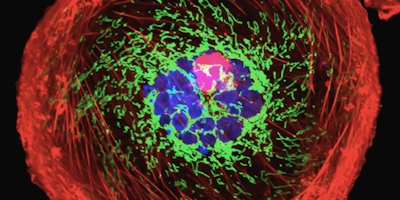A summary of clinical trials for ADHD treatments that use medications or pharmacological treatment, that are conducted in 2024 are listed in this article.
| Study Title | Interventions | Primary Outcome Measures |
| EEG-MRI Imaging of Methylphenidate Effects in Adult ADHD and Attentional Symptoms in Mood Disorders | DRUG: Placebo|DRUG: Methylphenidate immediate release 25mg | Changes in brain activations |
| Phase 3 Efficacy and Safety Fixed-Dose Study in Pediatrics (6-17) With ADHD Using CTx-1301 | DRUG: CTx-1301-Dexmethylphenidate 12.5 mg (titration only)|DRUG: CTx-1301-Dexmethylphenidate 18.75mg (randomized fixed dose)|DRUG: CTx-1301-Dexmethylphenidate 25mg (randomized fixed dose)|DRUG: CTx-1301-Dexmethylphenidate 37.5 mg (randomized fixed dose)|DRUG: Placebo | Attention Deficit Hyperactivity Disorder Rating Scale |
| Phase 3 Efficacy and Safety Laboratory Classroom Study in Pediatrics (6-12) With ADHD Using CTx-1301 | DRUG: CTx-1301 – Dexmethylphenidate 6.25mg|DRUG: CTx-1301 – Dexmethylphenidate 12.5mg|DRUG: CTx-1301 – Dexmethylphenidate 18.75mg|DRUG: CTx-1301 – Dexmethylphenidate 25.0mg|DRUG: CTx-1301 – Dexmethylphenidate 31.25mg|DRUG: CTx-1301 – Dexmethylphenidate 37.5mg|DRUG: Placebo | SKAMP-combined scores collected across the 14-hour classroom day that indicates to the degree of impairment |
| A Safety/Tolerability and PK Study With Azstarys® in Children With ADHD | DRUG: Serdexmethylphenidate (SDX) and dexmethylphenidate (d-MPH) | Asafety and tolerability of up to 12 months of treatment with Azstarys |
| Duration and Efficacy of Azstarys on Adult ADHD Symptoms and Executive Function in Early Evening | DRUG: Serdexmethylphenidate/dexmethylphenidate | Change in Expanded Adult ADHD Investigator Symptom Rating Scale |
| An Efficacy and Safety Study w/ Azstarys® in Children With ADHD | DRUG: Serdexmethylphenidate (SDX) and dexmethylphenidate (d-MPH)|OTHER: placebo | ADHD Rating Scale (ADHD-RS) |
| A Study of TAK-503 in Children and Teenagers With Attention Deficit Hyperactivity Disorder (ADHD) | DRUG: Guanfacine hydrochloride (TAK-503)|DRUG: Atomoxetine hydrochloride|OTHER: Placebo | Change From Baseline in the Reaction Time (RTI) Task of the Cambridge Automated Neuropsychological Test Battery |
| COMT Inhibition Among Individuals With Comorbid AUD/ADHD | DRUG: Tolcapone|DRUG: Placebo | Change in alcohol-induced stimulation between medication periods
|
| Methylphenidate for the Treatment of PTSD With Associated Neurocognitive Complaints | DRUG: Methylphenidate|DRUG: Placebo | PTSD Symptom |
| Pharmacokinetics, Pharmacodynamics, and Safety Profile of Understudied Drugs Administered to Children Per Standard of Care (POPS) | DRUG: The POP02 study is collecting bodily fluid samples (i.e., whole blood, effluent samples) of children prescribed the following drugs of interest per standard of care: | Clearance (CL) or apparent oral clearance (CL/F) as measured by PK sampling |
1. EEG-MRI Imaging of Methylphenidate Effects in Adult ADHD and Attentional Symptoms in Mood Disorders
This clinical trial, conducted by the University Hospital, Strasbourg, France, aims to understand the effects of a drug called Methylphenidate on adults with Attention Deficit Hyperactivity Disorder (ADHD) and attentional symptoms in mood disorders.
What is the Intervention?
The intervention in this trial involves the use of functional MRI and EEG to determine the neural mechanisms of the effect of Methylphenidate in patients with pure ADHD (ADHD-P) and ADHD associated with mood disorder (ADHD-MD), and compare them to healthy subjects.
What is the Drug?
The drug used in this trial is Methylphenidate immediate release 25mg. Methylphenidate is a medication that has a rapid and significant effect on attentional symptoms and impulsivity.
What is the Primary Outcome?
The primary outcome of this trial is to determine whether Methylphenidate impacts differently on brain circuits associated with cognitive functions in the two clinical populations studied (adult ADHD patients and patients with post mood disorder attentional deficit) and in comparison to controls.
The sponsor for this trial is the University Hospital, Strasbourg, France.
2. Phase 3 Efficacy and Safety Fixed-Dose Study in Pediatrics (6-17) With ADHD Using CTx-1301
This is a Phase 3, randomized, double-blind, placebo-controlled, multi-center, fixed-dose, parallel-group efficacy and safety study in a pediatric population (6-17) with Attention-Deficit/Hyperactivity Disorder (ADHD) using CTx-1301 (d-MPH).
What is the Intervention?
The intervention in this trial involves a double-blind randomized phase and a safety follow-up visit.
What is the Drug?
The drug used in this trial is CTx-1301-Dexmethylphenidate 12.5 mg.
What is the Primary Outcome?
The primary outcome of this trial is not specified in the provided data.
3. Phase 3 Efficacy and Safety Laboratory Classroom Study in Pediatrics (6-12) With ADHD Using CTx-1301
This clinical trial, sponsored by Cingulate Therapeutics, aims to evaluate the efficacy and safety of a drug called CTx-1301 (Dexmethylphenidate) in children aged 6-12 with ADHD in a laboratory classroom setting.
What is the Intervention?
The intervention in this trial involves administering various doses of CTx-1301 (Dexmethylphenidate), ranging from 6.25mg to 37.5mg or a placebo to the participants.
What is the Drug?
The drug used in this trial is CTx-1301 (Dexmethylphenidate). Dexmethylphenidate is a medication used to treat ADHD.
What is the Primary Outcome?
The primary outcome of this trial is the change from baseline (pre-dose measured at Day 63) of the Swanson, Kotkin, Agler, M-Flynn, and Pelham Scale (SKAMP)-combined scores collected across the 14-hour classroom day. The SKAMP is a validated rating of subjective impairment of classroom behaviors. A higher SKAMP score signifies greater impairment.
The sponsor for this trial is Cingulate Therapeutics.
4. A Safety/Tolerability and PK Study With Azstarys® in Children With ADHD
This clinical trial, sponsored by Corium, Inc., is a multicenter, dose-optimized, open-label, safety/tolerability and pharmacokinetic (PK) study with Azstarys® in children aged 4 and 5 with ADHD.
What is the Intervention?
The intervention in this trial involves administering Azstarys®, which contains Serdexmethylphenidate (SDX) and dexmethylphenidate (d-MPH), to the participants.
What is the Drug?
The drug used in this trial is Azstarys®, which contains Serdexmethylphenidate (SDX) and dexmethylphenidate (d-MPH). These are medications used to treat ADHD.
What is the Primary Outcome?
The primary outcome of this trial is to determine the safety and tolerability of up to 12 months of treatment with Azstarys®. Safety and tolerability will be assessed by the incidence of adverse events reported in the study.
5. Duration and Efficacy of Azstarys on Adult ADHD Symptoms and Executive Function in Early Evening
This clinical trial, conducted by NYU Langone Health, aims to extend the safety and efficacy evidence basis for Azstarys in adults with ADHD. This open-label, treatment study will examine the efficacy of Azstarys on ADHD symptoms using the Adult ADHD Investigator Symptom Rating Scale (AISRS).
What is the Intervention?
The intervention in this trial involves the administration of Serdexmethylphenidate/dexmethylphenidate to the participants.
What is the Drug?
The drug used in this trial is Serdexmethylphenidate/dexmethylphenidate. These are medications used to treat ADHD.
What is the Primary Outcome?
The primary outcome of this trial is the change in Expanded Adult ADHD Investigator Symptom Rating Scale (AISRS) Score from Baseline to Week 2 and Week 5. The AISRS is an 18-item questionnaire assessing symptoms of adult ADHD. Higher scores indicate more severe symptoms of ADHD.
The sponsor is NYU Langone Health.
6. An Efficacy and Safety Study with Azstarys® in Children With ADHD
This clinical trial, sponsored by Corium, Inc., is a multicenter, dose-optimized, randomized, double-blind, efficacy and safety study with Azstarys® in children aged 4 to 12 with ADHD.
What is the Intervention?
The intervention in this trial involves administering Azstarys®, which contains Serdexmethylphenidate (SDX) and dexmethylphenidate (d-MPH), or a placebo to the participants.
What is the Drug?
The drug used in this trial is Azstarys®, which contains Serdexmethylphenidate (SDX) and dexmethylphenidate (d-MPH). These are medications used to treat ADHD.
What is the Primary Outcome?
The primary outcome of this trial is a comparison of the change in mean ADHD Rating Scale (ADHD-RS) results from baseline to end of treatment between active and placebo treatments. The ADHD-RS is an 18-item scale based on Diagnostic and Statistical Manual of Mental Disorders criteria of ADHD. Higher scores indicate more severe symptoms of ADHD.
The sponsor is Corium, Inc..
7. A Study of TAK-503 in Children and Teenagers With Attention Deficit Hyperactivity Disorder (ADHD)
This clinical trial, sponsored by Shire, aims to learn more about long-term TAK-503 treatment in children and teenagers with ADHD for whom earlier stimulant treatment did not work.
What is the Intervention?
The intervention in this trial involves the administration of Guanfacine hydrochloride (TAK-503), Atomoxetine hydrochloride, or a placebo to the participants.
What is the Drug?
The drug used in this trial is Guanfacine hydrochloride (TAK-503) and Atomoxetine hydrochloride. These are medications used to treat ADHD.
What is the Primary Outcome?
The primary outcome of this trial is the change from baseline in the Reaction Time (RTI) Task of the Cambridge Automated Neuropsychological Test Battery (CANTAB) at Week 10, Week 18, and Week 49. The RTI task of CANTAB involves elements of decision-making and attention as measured by choice accuracy as well as motor responses, by measuring motor and mental response speeds, and assesses movement time, reaction time, response accuracy, and impulsivity.
8. COMT Inhibition Among Individuals With Comorbid AUD/ADHD
This clinical trial, the sponsor of which is not specified in the provided data, aims to determine whether the catechol-O-methyltransferase (COMT) inhibitor tolcapone, relative to placebo, affects response to alcohol, decision-making, brain activation associated with alcohol cue reactivity, response inhibition, and selective attention, or alcohol drinking.
What is the Intervention?
The intervention in this trial involves administering Tolcapone or a placebo to the participants.
What is the Drug?
The drug used in this trial is Tolcapone. Tolcapone is a COMT inhibitor that is used to treat Parkinson’s disease and other conditions.
What is the Primary Outcome?
The primary outcomes of this trial include the change in alcohol-induced stimulation between medication periods, change in subjective response to alcohol between medication periods, and change in risky decision-making after alcohol administration between medication periods.
9. Methylphenidate for the Treatment of PTSD With Associated Neurocognitive Complaints
This clinical trial, sponsored by the VA Office of Research and Development, aims to evaluate the ability of Methylphenidate to treat PTSD and associated neurocognitive complaints in Veterans. This study will compare the aggregated change in PTSD and neurocognitive symptoms between periods of treatment with Methylphenidate versus placebo.
What is the Intervention?
The intervention in this trial involves the administration of Methylphenidate or a placebo to the participants.
What is the Drug?
The drug used in this trial is Methylphenidate. Methylphenidate is a stimulant medication used to treat ADHD and other conditions.
What is the Primary Outcome?
The primary outcome of this trial is the PTSD Symptom Checklist for DSM-5 (PCL-5) score. The PCL-5 is a 20-item self-report that assesses how much the participant was bothered by each DSM-5 symptoms of PTSD. Higher scores indicate more severe symptoms of PTSD.
10. Pharmacokinetics, Pharmacodynamics, and Safety Profile of Understudied Drugs Administered to Children Per Standard of Care (POPS)
This clinical trial, the sponsor of which is not specified in the provided data, aims to evaluate the pharmacokinetics (PK) of understudied drugs currently being administered to children per standard of care (SOC) as prescribed by their treating provider.
What is the Intervention?
The intervention in this trial involves collecting bodily fluid samples (i.e., whole blood, effluent samples) of children prescribed the following drugs of interest per standard of care.
What is the Drug?
The specific drugs used in this trial are not specified in the provided data.
What is the Primary Outcome?
The primary outcomes of this trial include Clearance (CL) or apparent oral clearance (CL/F), Volume of distribution (V) or apparent oral volume of distribution (V/F), Elimination rate constant (ke), Half-life (t1/2), Absorption rate constant (ka), and AUC (area under the curve) as measured by PK sampling.
Note: For more detailed information about these trials, please visit https://clinicaltrials.gov/


